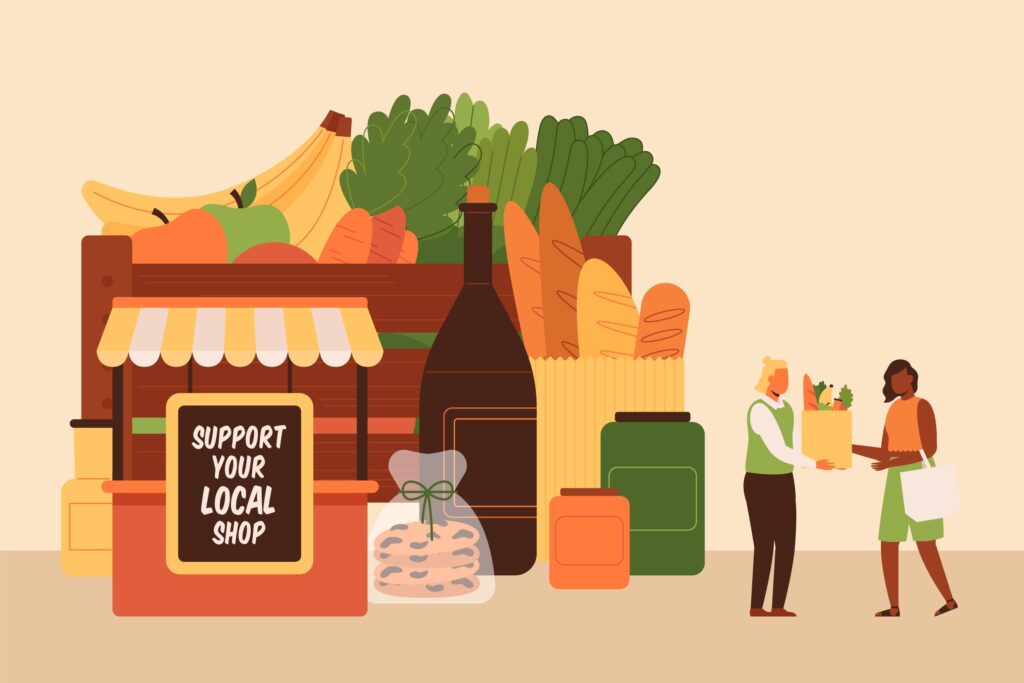Six ways to Save Money on Groceries
Many families now give household spending top importance in view of growing living expenses and economic instability. Among the several places one can save money, supermarket shopping is one that presents a major chance. By shopping strategically and preparing our meals with great care, we will be able to reduce the amount of money we spend on groceries without compromising the quality of the food we consume. You may be able to reduce the amount you spend on groceries by following these six practical suggestions:
1. Create a Budget
A clearly established grocery budget forms the basis of conscious expenditure. First, we should examine our historical grocery receipts to find an average monthly spending to support this. This research helps us to spot possible savings chances and spending trends. After we know our usual grocery expenses, we can create a reasonable restriction depending on our present financial situation. Apart from tracking our expenses, a budget motivates us to make more deliberate purchases, so saving money on groceries.
2. Make a Weekly Plan
Careful meal planning is among the best strategies for grocery savings. By establishing a weekly meal schedule, we can produce an exact shopping list that minimises food waste and helps to lower impulse buying. Meal planning around seasonal products and those on sale will help us to maximise savings and guarantee that we use fresh foods in every day meals. By pushing the use of whole, unprocessed foods, this method not only saves money but also promotes better eating habits.
3. Use Coupons and Loyalty Programs
Many grocery retailers now use apps and internet platforms to run discounts and promotions. If you spend some time compiling and using these coupons at the register, you could save quite a lot. Moreover, enrolling in shop loyalty programs usually pays off with special discounts and cashback incentives, thereby improving our whole food expenditure. Combining coupon utilisation with loyalty incentives will help us to maximise our savings and maximise our food dollar usage.
4. Buy in Bulk
Another great way to cut expenses is by bulk buying. Many things, especially nonperishable commodities like cereals, canned goods, and cleaning supplies, offer notable savings when purchased in bigger numbers. This strategy not only lowers the unit price but also lessens the frequency of grocery shop visits, therefore saving time and transportation expenditures. To prevent waste, it is imperative, therefore, that these bulk products be used before their expiration. Meal planning around bulk purchases can help in this sense by facilitating simpler consumption of products before they deteriorate.
5. Opt for Generic Brands
Using store-brand or generic goods could result in really significant savings. Though at a fraction of the cost, these substitutes sometimes offer same quality as their name-brand equivalents. Prioritising generic choices will help us to maximise our grocery expenditure and yet satisfy our nutritional requirements. Taste tests and ingredient list comparisons will help us find which generic items fit our households the best. We can discover over time that our taste in store brands favours certain over their more costly rivals.https://thinkmewise.com/heightened-awareness-rise-cancer-women/
6. Shop Seasonal and Local
Often picked at their best, seasonal fruits and vegetables have enhanced flavour and nutritional worth. Apart from helping local agriculture, visiting neighbourhood farmers’ markets can result in better fresh food costs than those of supermarkets. This activity not only encourages sustainability but also helps us to connect with our neighbourhood. Including seasonal and locally grown foods into our meal schedule will help us to maintain a varied and nutritious diet while controlling expenses.
Conclusion
One reasonable goal is to save money on food by means of smart buying choices and cautious preparation. Meal planning, coupon use, bulk buying, generic brand selection, and coupon application will help consumers greatly cut their grocery expenses without sacrificing quality or nutrition. Grocery shopping done pro-actively not only improves financial security but also promotes a more environmentally friendly way of life.
Finally, implementing these techniques will enable us to take charge of our grocery expenditure while we negotiate the difficulties of the modern economic environment. With enough work and foresight, we can keep our budgets intact and still have healthy dinners. Adopting these ideas not only results in quick savings but also encourages long-term behaviours that support a better, more sustainable way of living.











